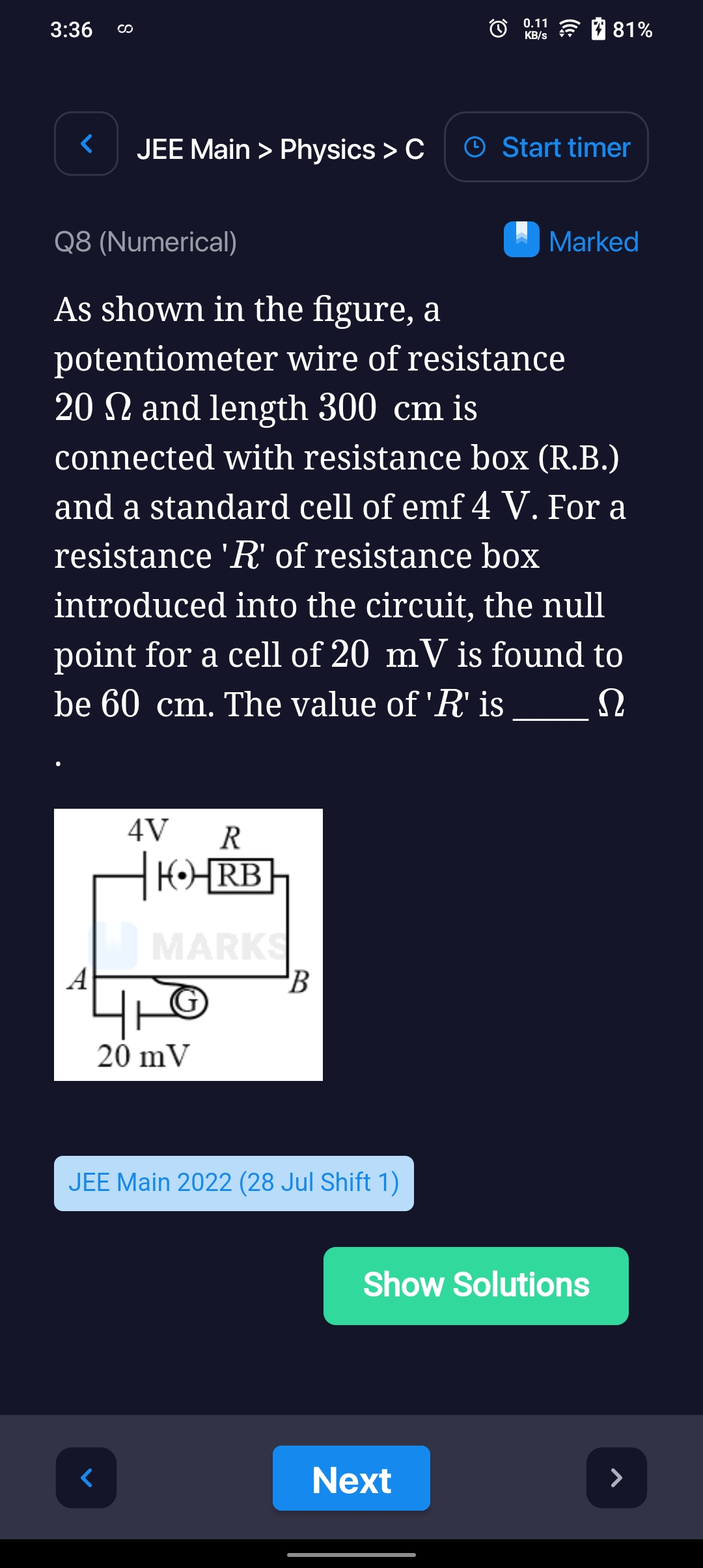CBSE Class 12-science Answered
Ohm's Law is a formula used to calculate the relationship between voltage, current and resistance in an electrical circuit.
Mathematicaly it is written as , E = I x R
Where E is voltage across a resistive component in the electrical circuit , I is current passing through the resistive component and R is resistance value.
If any two above quantities are known, third quantity can be calculated using the above relation.
If we know voltage (E) and current (I) and want to know resistance (R), then R = E/I .
Resistance cannot be measured in an operating circuit, so Ohm's Law is especially useful when it needs to be calculated.
Rather than shutting off the circuit to measure resistance, a technician can determine R using the above variation of Ohm's Law.
Now, if we know voltage (E) and resistance (R) and want to know current (I), we use the relation I = E/R .
Hence ohm's law helps to know the current without using ammeter.
if we know current (I) and resistance (R) and want to know voltage (E), we use the relation E = I x R
so that without using voltmeter we will know the voltage





